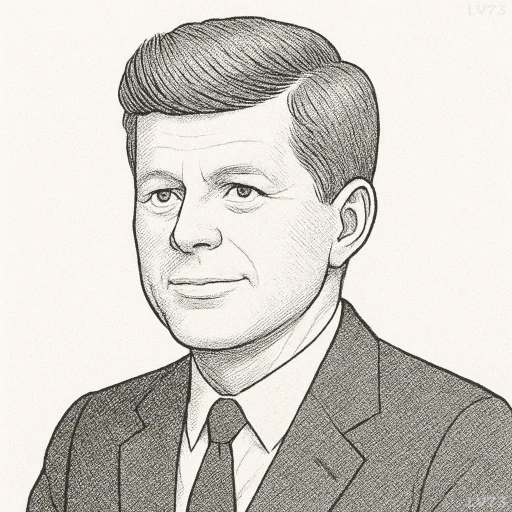“I believe in a president whose religious views are his own private affair, neither imposed by him upon the nation or imposed by the nation upon him as a condition to holding that office.”

- May 29, 1917 – November 22, 1963
- American
- Politician
table of contents
Quote
“I believe in a president whose religious views are his own private affair, neither imposed by him upon the nation or imposed by the nation upon him as a condition to holding that office.”
Explanation
In this statement, John F. Kennedy firmly advocates for the principle of religious freedom and the separation of church and state in American governance. His words reflect his belief that a president should be free to practice his own faith privately, without it becoming a condition of his public office or a tool for political influence. Kennedy emphasizes that religion should not be used as a litmus test for political leadership, nor should a president’s religious views be used to justify policy or governance. His statement is a defense of individual liberty, suggesting that a leader’s ability to govern should be based on his competence and values, not on conformity to a particular religion.
This quote was delivered at a time when Kennedy, a Catholic, faced significant scrutiny about his religious beliefs, particularly from those who feared that a Catholic president might prioritize loyalty to the Pope or Catholic teachings over his duties to the nation. The Protestant majority in America, at the time, had concerns about the political influence of the Vatican, and many questioned whether a Catholic president could be truly loyal to the United States. Kennedy’s statement during his campaign for president in 1960 was a direct response to these concerns, asserting that his religion would not interfere with his ability to serve the country and make decisions in the best interest of all Americans, regardless of their faith.
Kennedy’s defense of the separation of religion and politics remains an important and timely message today. In contemporary political discourse, questions about the role of faith in leadership, the influence of religious groups, and the role of religious identity in political decision-making are still highly relevant. Kennedy’s quote reinforces the idea that religious freedom is a fundamental aspect of American democracy, and that personal faith should remain separate from the public duties of a leader. It calls for the protection of individual rights, ensuring that no one is excluded from public service because of their faith or lack of faith, and that public policies should be shaped by reason, justice, and the needs of the people, rather than any one religious doctrine.
Would you like to share your impressions or related stories about this quote in the comments section?
